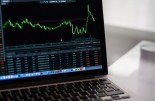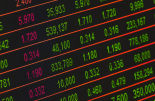Schroders: De impact van het coronavirus volgens de beleggingsspecialisten-update
Schroders: De impact van het coronavirus volgens de beleggingsspecialisten-update

Omdat de ontwikkelingen op de financiële markten elkaar snel opvolgen, geven verschillende fondsmanagers van Schroders hun inzichten over wat de verspreiding van het coronavirus betekent voor hun beleggingsgebieden. Hieronder volgt een selectie. Meer beschouwingen zijn online te lezen in het artikel "Coronavirus: the views from our investors - update” .
Global equities
Alex Tedder, Head and CIO of Global and US Equities:
“While Covid-19 has had a material effect on economic fundamentals – alongside the humanitarian impact – it has been a catalyst for a rapid market re-set following an unprecedented bull market too.
“Elevated volatility is not unusual during geopolitical disruption and will undoubtedly continue. More relevant, however, are the underlying drivers of equity returns and the outlook for the likely trajectory of the recovery. For the time being, market moves reflect the fear of the unknown as well as the deterioration in the economic environment and growth expectations. Unprecedented monetary and fiscal stimulus is thus being brought to bear to support economic activity.
“If the impact of the virus can be ‘successfully’ managed, or is less profound than the more extreme scenarios, global equity markets could see a sharp recovery in the latter half of 2020. If not, we will likely see a different path of market recovery. Overall, we think that an L-shaped recovery – a steep decline in economic activity and a slow recovery – is a realistic probability.
“Even in our most optimistic scenario, we expect sentiment to deteriorate in the coming weeks, as virus numbers continue to rise. We believe we are close to a level where we could add risk, but we first need to see data showing that the virus is starting to slow and its economic impacts can be modelled with greater confidence."
Asian equities
Toby Hudson, Head of Asia ex Japan Equities:
“The recent acceleration in Covid-19 case numbers in Europe and North America has undermined earlier confidence in China’s apparently effective control of their outbreak. This risks plunging much of the broader global economy into a recession as governments move to ‘lock down’ their populations to limit transmission. The duration of this economic shock and the impact on corporate profitability is very hard to predict today, but as the spread of cases eventually slows, and markets gain more confidence in governments’ responses, we would expect to see a sharp rebound in equity markets.
“New cases in China have fallen and industrial capacity is almost back to pre-crisis levels. We would expect a gradual pick-up in domestic consumption as day-to-day life is slowly normalised. With China taking the pain of its lock-down first, it is slightly ahead of the curve. However, the recovery is likely to remain patchy as some segments of the domestic economy will take longer to normalise. There are risks of a secondary spike in infections if the lock-down is eased too quickly.
"The export sectors face a demand shock as Western countries lock down, hitting employment, income and investment spending if the downturn lasts for more than a few months. Given the fragility of the recovery in China, we would expect more stimulus, with increased spending in areas like infrastructure and measures to support household incomes and private consumption.
“Valuations in SE Asia have been hit very hard in the recent sell-off, with headline multiples approaching past crisis lows. However, there is very heavy exposure of these equity markets to banks and energy stocks. With interest rates being cut to support growth, and credit risks increasing as GDP growth slows, bank earnings and return on equity (ROE) are likely to be under pressure structurally as well as cyclically, while the outlook for oil prices remains unpredictable given geopolitics. Share prices for the smaller number of better quality domestic consumer names have now started to correct as well, but valuations are not yet compelling.”
Eurozone equities
Martin Skanberg, Fund Manager:
“In Europe, many governments have been quick to initiate credit and wage support programmes to moderate the severe decline in near-term economic input, and to help smaller, more exposed businesses cope with such a difficult environment. We are dealing not only with the health emergency, but also the collapse in crude oil leading to bankruptcies and global credit tightening (hoarding credit as well foods and staples).
"In addition, central banks globally are doing as much as possible to provide support for markets.
"The impact on end-consumer demand and businesses is impossible to judge with any degree of accuracy. This is compounded by the lack of firm understanding in the scientific community about the ultimate nature of Covid-19: how exactly does it spread, how long will it last, will it return once social isolation measures are eased, how long will it take to find an effective treatment or vaccine? Most companies will be affected to varying degrees and we have to assume our more cyclically-exposed businesses will see significant dents to their top lines in 2020. Indeed, no one in the market can have any kind of confidence about an earnings or cash flow number for this calendar year.
Fixed income
Philippe Lespinard, Co-Head of Fixed Income:
“Government bonds have been sold at the same time as riskier assets, partly because central bank reserves are held predominantly in government bonds. With many preparing large liquidity support lines, they have had to liquidate bond holdings to realise the cash. Meanwhile, consumption is falling fast, adding a demand shock due to the shutdown of Chinese factories. If we think about retailers, most only keep three months’ worth of operating cash flow on hand.
“There is a large amount of fiscal spending in the pipeline and more direct, micro level measures to support companies, such as government loan guarantees, which allow companies to run big overdrafts. Ultimately some of these overdrafts may have to be forgiven. These losses will go on to government balance sheets resulting in a large increase in national debt in many countries. The increase in government yields is also a reflection of this.
“Cutting rates now achieves little other than providing liquidity to banks, which they already have plenty of. Banks are in good shape: well capitalised, good asset quality, less leverage and large liquidity coverage. We think a risk of a solvency issue in the financials’ sector appears unlikely. Companies have started to call in credit lines, Boeing for instance has just drawn on $14 billion from its banks. This raises the prospect of a big drain on bank liquidity, but that’s why central banks will provide support. It’s more likely we see an issue with asset quality. There are $1.4 trillion of leveraged loans globally, mostly to private equity-sponsored companies. Some of these are highly levered, so any slowdown or stoppage in those businesses is damaging to credit quality.
“We think disruption will last three-to-six months, after which we could start to see recovery. If that happens, you could argue the market does indeed appear broadly cheap now. But it is important to be selective and cautious. Especially if the recession lasts longer, then it will not matter how cheap some companies’ bonds are now, because they will ultimately be zero. For others recovery rates will be very low.
“As we get more clarity on the extent of government support, we will be able to gain a better idea of where the greatest risks lie and where the best opportunities are. Default rates are going much higher and there will be downgrades from investment grade to high yield. Some companies will take the right actions to strengthen balance sheets, others will need to restructure. On a two-year view there are certainly opportunities, but it is difficult to say here and now that there is unequivocal value.”
Multi-Asset
Johanna Kyrklund, Group CIO and Global Head of Multi-asset Investments:
Firstly, valuations. We entered this episode with very expensive valuations in the market and the good news is that some of the “froth” has been taken off. Certainly, at the stock level, we are starting to see opportunities.
“At the market level we are starting to price in negative earnings growth, which is a necessary adjustment given the significant demand shock we are seeing as a result of the virus. We think we are two-thirds of the way there in terms of the valuation adjustment.
“Secondly, we are looking at the response from governments. The cuts from the central banks are helpful in terms of allowing the markets to function well. But we really need to see a strong fiscal response to support individuals and businesses through this crisis.
“Finally, we are monitoring the infection rates of the coronavirus. If we were to see a peak in the infection rates in Italy that would be welcome news, because it would suggest that the measures taken by Italy are effective. Also, more visibility on the outbreak in the US would help us more accurately price this crisis.
“Having seen some very significant falls in the market, we expect more of a two-way action in the coming weeks. Rising and falling as markets weigh on the one hand the economic consequences of the containment measures and on the other hand governments’ responses.
“So, we’ll probably see a little bit more volatility, but we are starting to see some opportunities emerge at the stock level.”










